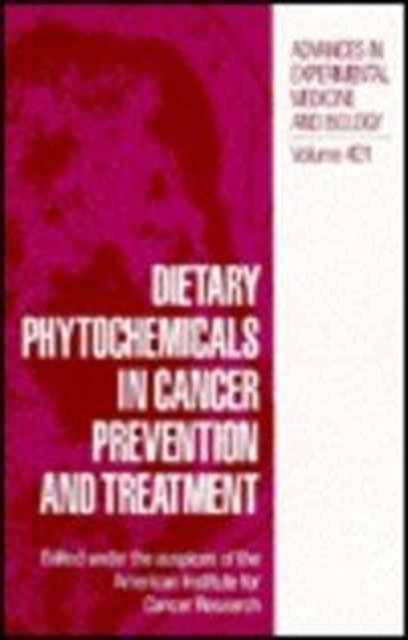
Bedankt voor het vertrouwen het afgelopen jaar! Om jou te bedanken bieden we GRATIS verzending (in België) aan op alles gedurende de hele maand januari.
- Afhalen na 1 uur in een winkel met voorraad
- Gratis thuislevering in België vanaf € 30
- Ruim aanbod met 7 miljoen producten
Bedankt voor het vertrouwen het afgelopen jaar! Om jou te bedanken bieden we GRATIS verzending (in België) aan op alles gedurende de hele maand januari.
- Afhalen na 1 uur in een winkel met voorraad
- Gratis thuislevering in België vanaf € 30
- Ruim aanbod met 7 miljoen producten
Zoeken
Dietary Phytochemicals in Cancer Prevention and Treatment
€ 139,95
+ 279 punten
Omschrijving
The sixth annual research conference of the American Institute for Cancer Research was held August 31 and September 1, 1995, at the Loews L'Enfant Plaza Hotel in Washing- ton, DC. In view of the promising leads in the diet/nutrition and cancer research field, the conference was devoted to "Dietary Phytochemicals in Cancer Prevention and Treatment. " The number of sessions was increased over that in previous conferences in order to accommodate the topics of interest. The conference overview, entitled "Plants and Cancer: Food, Fiber, and Phytochemicals," provided a framework for the following sessions. In addition, the attendees were reminded that for several decades epidemiologists have noted a lower risk of lung, esophageal, stomach, and colon cancer in populations consuming diets high in fruits and vegetables. However, isolation and ingestion of individual protective factors are not the preferred action since the complexity of the food and the matrix in which nutritional factors are embedded are important. The individual sessions then provided more insight as to why eating fruits and vegetables is associated with a lower risk of cancer. The first of these sessions was on "Isothiocyanates" that induce both the Phase I and Phase II enzymes that increase detoxification and conjugation reactions, thus causing more rapid removal of any xenobiotic or carcinogen. Thus, less carcinogen is available for interaction with DNA or other critical cellular macromolecules.
Specificaties
Betrokkenen
- Uitgeverij:
Inhoud
- Aantal bladzijden:
- 324
- Taal:
- Engels
- Reeks:
- Reeksnummer:
- nr. 401
Eigenschappen
- Productcode (EAN):
- 9780306453656
- Verschijningsdatum:
- 30/09/1996
- Uitvoering:
- Hardcover
- Formaat:
- Genaaid
- Afmetingen:
- 230 mm
- Gewicht:
- 819 g

Alleen bij Standaard Boekhandel
+ 279 punten op je klantenkaart van Standaard Boekhandel
Beoordelingen
We publiceren alleen reviews die voldoen aan de voorwaarden voor reviews. Bekijk onze voorwaarden voor reviews.








